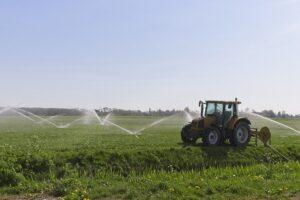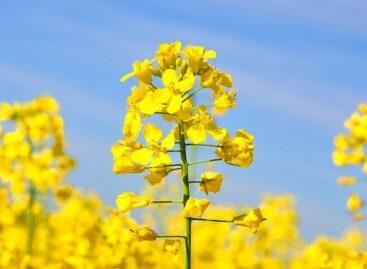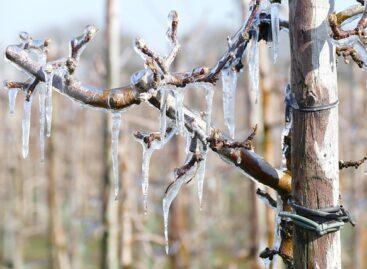The survey was made with the participation of thousands of farmers: According to the producers, it is also important to retain water
Hungary is still a “water superpower”, but the distribution of precipitation has now changed significantly both in space and time. Drought lasting several months, often followed by torrential rain and flooding, is becoming more common. It is therefore crucial to retain as much water as possible when it arrives in the fall and winter. That is why domestic farmers also consider water conservation important and would be willing to do something about it – it was revealed from the results of a survey made with the involvement of the village farmers’ network of the National Chamber of Agrarian Economy. Based on the survey, a total of 5 sample areas were designated in four counties, where producers can implement the retention of water on some lower-quality farmland under the professional guidance of the water management directorates.

(Photo: Pixabay)
Climate change is no longer the challenge of the future, but the problem of the present. In recent years, the increasingly extreme weather is causing serious headaches and serious economic damage to Hungarian farmers. This year – after the summer of 2022 – the producers had to face a significant drought again, and within a few weeks the news was already about the flooding of the Danube. At the same time, however, the Tisza watershed is still characterized by a serious water shortage, which shows the climatic extremes of our country. On behalf of the Ministry of Agriculture, the Institute of Agricultural Economics, the National Directorate General of Water, the Irrigation and Water Management Research Center of the MATE Institute of Environmental Sciences and the NAK village farmer network conducted a national survey in the spring, the purpose of which was to learn about farmers’ willingness and knowledge of water retention in low-lying areas suitable for water retention. The survey was related to a 40,000-hectare low-lying area potentially suitable for water retention, designated on the basis of natural, environmental and technical aspects. More than 10,000 of the approximately 11,000 potentially affected producers responded during the time available to fill out the questionnaire – barely 1 month. This also clearly shows that an answer to the problems caused by climate extremes must be found as soon as possible.
According to the results of the survey, 80 percent of the respondents consider it important to conserve water in cropland
Half of the respondents are willing to change the utilization of the affected area, where the creation of wetlands and grasslands is preferred, but agroforestry systems and energy plantations also play a role. However, for this to happen, producers need both professional and financial support. In addition, technical developments would also be necessary. Among the producers, there is the greatest demand for the construction of drainage ditches, canal systems and structures for water management, as well as their development. Based on the willingness of the producers and professional water proposals (technical and water resource options), NAK specialists selected 5 different types of sample areas: one each in the counties of Szabolcs-Szatmár-Bereg, Hajdú-Bihar and Békés, and two areas in the counties of Jász-Nagykun-Szolnok was selected. NAK organizes professional workshops for the producers farming in the sample areas, and the water sector prepares the technical project documentation necessary for the principled water law licensing procedure. Thanks to this, water retention can be realized with professional support. In addition, the invitations regarding the soon-to-be-opened water sector within the framework of the KAP Strategic Plan will be presented to the stakeholders. In addition to drawing attention to the importance of water conservation in agricultural areas, the project also presents sustainable, natural water conservation solutions. The goal is that other producers who are thinking about water conservation will later learn about the water retention practices implemented in the sample areas.
NAK
Related news
AM: Ministry of Agriculture pays special attention to supporting the horticultural sector
🎧 Hallgasd a cikket: Lejátszás Szünet Folytatás Leállítás Nyelv: Auto…
Read more >Related news
(HU) METRO Gasztro Fesztivál a SIRHA Budapesten – Élmény, inspiráció és valódi megoldások a HoReCa-szakmának
🎧 Hallgasd a cikket: Lejátszás Szünet Folytatás Leállítás Nyelv: Auto…
Read more >Hétéves növekedési stratégiát jelentett be az Auchan
🎧 Hallgasd a cikket: Lejátszás Szünet Folytatás Leállítás Nyelv: Auto…
Read more >Protein, gut health and mental wellbeing – these trends will shape global food innovation in 2026
🎧 Hallgasd a cikket: Lejátszás Szünet Folytatás Leállítás Nyelv: Auto…
Read more >








